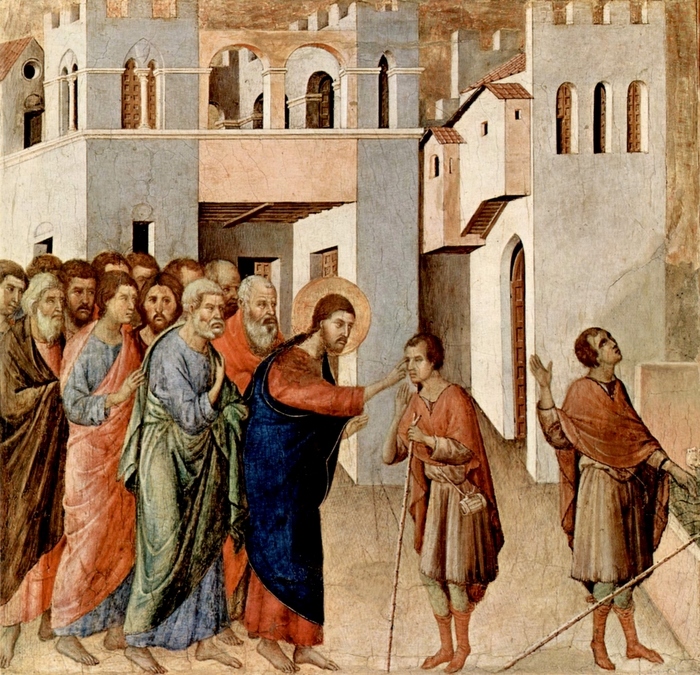Job continues to battle with is friends. The early church confounds friends and enemies alike. And, in the Gospel of John, Jesus brings his listeners to a point of decision with an unmistakable sign of God’s power. Miracles provide one of the major conceptual frames for the gospel. John includes eight major miracles, each one adding to the amazement of Jesus’ followers and the perplexity of his detractors. Around the midpoint of the gospel, Jesus heals a blind man. The authorities question him—who healed you? How did this happen? The man responds—maybe innocently, maybe insolently—“why do you want to know? Do you want to become his disciples, too?” Polarization, we find, is nothing new. Jesus’ friends know that it’s another sign of God’s power. The powerful are threatened by another reminds of their fallibility (and maybe a troubling divine confirmation of what Jesus says). So, enough is enough, Jesus shows up for a festival and the authorities take the opportunity to question Jesus themselves: “22At that time the festival of the Dedication took place in Jerusalem. It was winter, 23and Jesus was walking in the temple, in the portico of Solomon. 24So the Jews gathered around him and said to him, ‘How long will you keep us in suspense? If you are the Messiah, tell us plainly.’” Wouldn’t we all want to ask Jesus that question?
Some years ago I taught a class of youth who asked something similar. Where in the Gospel does Jesus say clearly who he is? How do we know to trust him as God’s own Word? We could spend time unpacking each of Jesus’ coy confessions and each of the disciples blundering attempts at understanding. But Jesus himself takes a run at an answer: “I have told you, and you do not believe. The works that I do in my Father’s name testify to me.” This probably isn’t the answer you want to give some questioning youth; but it works for our purposes. God doesn’t just want to give us the answers, as if we could set appropriate terms for the question. We don’t get to decide who God is and determine whether or not Jesus meets the job description. We do, however, get to follow Jesus to Jerusalem, see what he does, see how he loves, and respond. The text gives us the opportunity to follow along with Jesus. If we are really serious about answers, we’ll be sure to start here.
Tuesday, September 1
First Reading Job 12:1, 13:3-17, 21-27
Wednesday, September 2
First Reading Job 12:1, 14:1-22
Thursday, September 3
First Reading Job 16:16-22, 17:1, 17:13-16
Friday, September 4
First Reading Job 19:1-7, 14-27
Saturday, September 5
First Reading Job 22:1-4, 22:21-23:7
Sunday, September 6
First Reading Job 25:1-6, Job 27:1-6
Second Reading Revelation 14:1-7, 13
Gospel Reading Matthew 5:13-20
Monday, September 7
First Reading Job 32:1-10, 32:19-33:1, 33:19-28
Cover art: Duccio, di Buoninsegna, d. 1319. Christ Healing the Blind Man, from Art in the Christian Tradition, a project of the Vanderbilt Divinity Library, Nashville, TN. http://diglib.library.vanderbilt.edu/act-imagelink.pl?RC=49262

